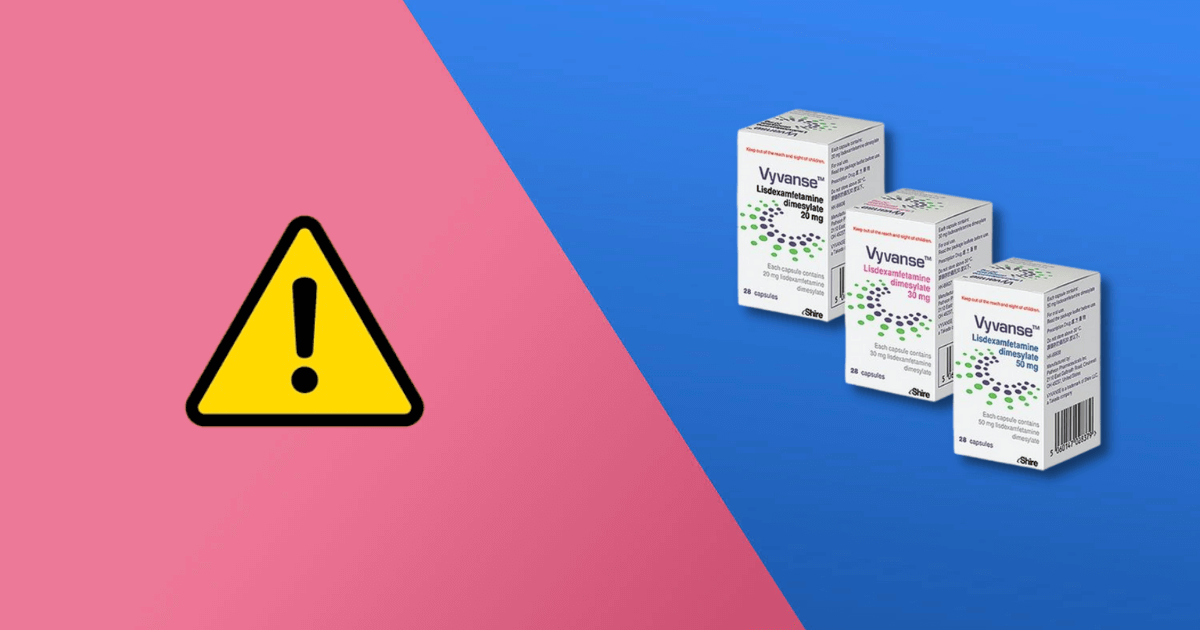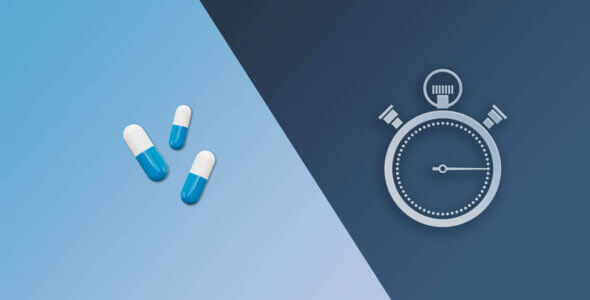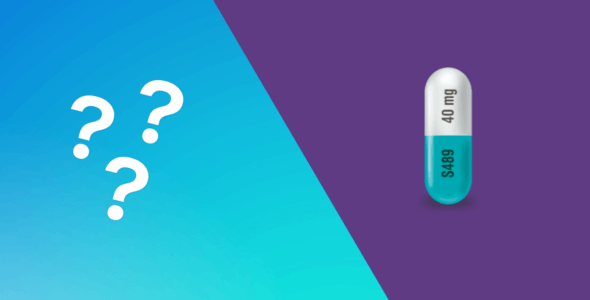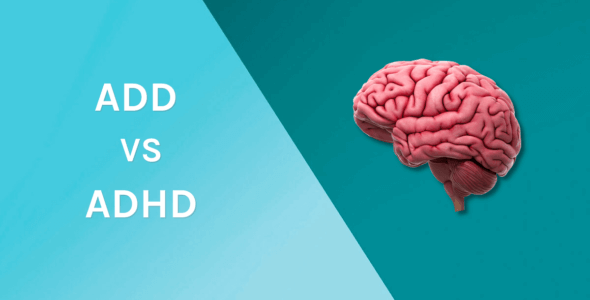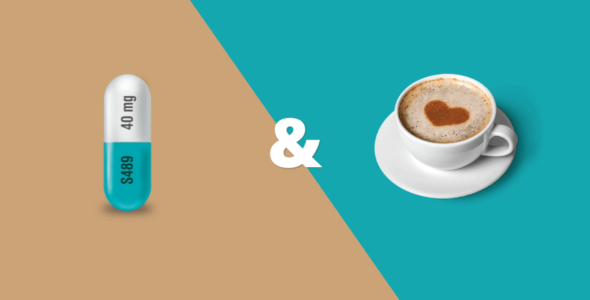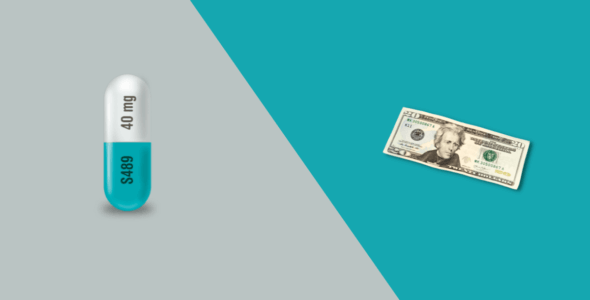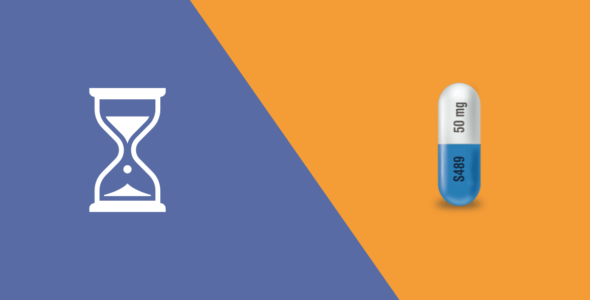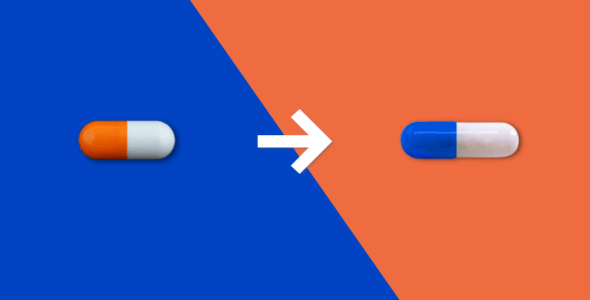Vyvanse side effects and how to avoid them
Table of contents
Vyvanse can cause adverse reactions. The more common side effects tend to be loss of appetite and stomach ache to more serious side effects such as new or worsening mental health issues. Learn more about Vyvanse side effects and how to avoid them.
What is Vyvanse?
Vyvanse is an FDA (U.S. Food and Drug Administration) approved medication manufactured by Shire PLC. Vyvanse is the brand name of lisdexamfetamine dimesylate, a derivative of amphetamine. It is a prescription drug belonging to a class of drugs known as Central Nervous System stimulants. Vyvanse is used to treat symptoms of Attention Deficit Hyperactivity Disorder (ADHD) and moderate to severe binge eating disorder. Vyvanse is not recommended for weight loss and obesity. Vyvanse is a prescription stimulant medication but is also classed as a Schedule II controlled substance. As a controlled substance, doctors usually prescribe small doses.
Other drugs included in the class of Central Nervous System stimulants include Adderall XR, Concerta (methylphenidate), and Ritalin. Vyvanse treats ADHD and binge eating disorders by increasing norepinephrine and dopamine levels, thereby altering the balance of chemicals in your brain.
How does Vyvanse work?
By working on the central nervous system, Vyvanse increases activity in areas of the brain that help you with your concentration and behavior. It works specifically on the brain chemicals dopamine and norepinephrine. Dopamine in particular is involved in feelings of pleasure, focus, and finding things interesting. Stimulant medications reduce the symptoms of ADHD making conditions such as inattention, poor decision making, and poor impulse control much less of a daily problem.
Vyvanse active ingredients
Vyvanse is similar to Adderall. The main difference is that Adderall is a mixture of four different kinds of amphetamine salts (one of which is dextroamphetamine) while Vyvanse only contains one type of amphetamine salt, called lisdexamfetamine.
Vyvanse is a prodrug, meaning lisdexamfetamine is converted into dexamphetamine once it is in the body. An advantage of Vyvanse is that it may less likely be abused. Vyvanse is a federally controlled substance because it has a high potential for drug abuse and can lead to dependence. You should store Vyvanse at room temperature, away from light and moisture, and from children and pets.
Vyvanse belongs to a class of drugs known as amphetamines, that work by blocking the reuptake of norepinephrine and dopamine into the presynaptic neuron and therefore increase the release of these monoamines into the extraneuronal space.
How long does a dose of Vyvanse last in your system?
Vyvanse will work for around 10 to 12 hours. After this levels will start to decrease and its effects will wear off. It will take up to 3 days before Vyvanse is cleared completely from your system. How long Vyvanse will work depends on factors such as your age, weight, or other medications you may be taking. If you suddenly stop taking Vyvanse you may get withdrawal symptoms (also known as the Vyvanse crash) such as anxiety, irritability, and fatigue.
Treatment for ADHD is commonly arranged by a specialist in the psychiatry department. You should always consult your healthcare provider when starting, stopping, or changing your dose.
What doses of Vyvanse are available?
Vyvanse is available in:
- Capsule form in the following doses: 10 mg, 20 mg, 30 mg, 40 mg, 50 mg, 60 mg, 70 mg
- Chewable tablet form in the following doses: 10 mg, 20 mg, 30 mg, 40 mg, 50 mg, 60 mg
To make swallowing easier, open the capsule and sprinkle the medicine into a glass of water or orange juice, or mix it with yogurt. Once the medicine has dissolved, drink or eat the mixture right away.
For additional safety information, read the full prescribing information and medication guide. Always speak with a healthcare professional for medical advice or about any changes to your dose so they can monitor and evaluate your condition.
Vyvanse side effects
The most common side effects of Vyvanse in children, adolescents, and/or adults with ADHD are:
- Anorexia
- Anxiety
- Dizziness, nausea
- Blurred vision
- Dry mouth
- Irritability
- Insomnia
- Upper abdominal pain, stomach pain, vomiting, loss of appetite, decreased weight, diarrhea, constipation
- Motor tics (repeated muscle movements)
- Increased heart rate
In rare instances, Vyvanse can cause more serious side effects. These can include:
- Serious cardiovascular reactions e.g. chest pain
- Sudden death has been reported with CNS stimulant treatment at recommended doses in pediatric patients with structural heart defects or other serious heart problems
- Sudden death, stroke, and heart attacks in adults
- High blood pressure and increase in heart rate
- Suppression of growth – monitor height and weight in pediatric patients
- Circulation problems, such as skin color changes, a cold feeling including Raynaud’s phenomenon
- Serotonin syndrome – an increased risk when co-administered with serotonergic agents (e.g., SSRIs, SNRIs, triptans), but also during overdosage situations
- New or worsening psychosis, bipolar disorder, or mental health issues
- Withdrawal symptoms if you suddenly stop using this medication – severe tiredness, sleep problems, mental/mood changes such as depression
- Severe allergic reactions e.g. hives, shortness of breath
Your doctor will assess the benefits of using Vyvanse against your risk of side effects. Patients are encouraged to report negative side effects or adverse reactions of Vyvanse to the FDA. Visit www.fda.gov/medwatch, or call 1-800-FDA-1088.
What are Vyvanse’s drug interactions?
Vyvanse can interact with other medications, including prescription drugs. In some instances, this can change how it and other medications work. It can even increase the likelihood and severity of some side effects. Medications that are known or thought to interact with Vyvanse include:
- Monoamine oxidase inhibitors, MAOIs, (methylene blue, phenelzine, or selegiline)
- Tricyclic antidepressants (desipramine or protriptyline)
- Medications that affect your serotonin system (SSRI or SNRI antidepressants, triptans, fentanyl, or St. John’s Wort)
Get your Vyvanse medication for only $49 per month
Get StartedHow to avoid Vyvanse side effects
While completely avoiding Vyvanse side effects may not be possible, there are some things you can do to reduce their severity:
1. Stick to the recommended dosage
Take your prescribed Vyvanse dosage that has been recommended by your healthcare professional at the same time every day to prevent you from forgetting your dose. Taking your medication consistently will make a big difference in how well Vyvanse works for you.
ADHD medications can be very effective when you find the right dosage. A good measure is to track your impulse control on various doses to monitor how you are reacting to the dose.
If you miss a dose of this medicine, skip the missed dose and go back to your regular dosing schedule. Do not double doses. Refer to the medication guide for more drug information.
2. Store Vyvanse correctly
Vyvanse should be stored at room temperature in a dry place in its original container. Knowing how to properly store your medication is important to make sure it remains as effective as possible. Taking expired or improperly stored medication could result in the medication not working properly and may even cause unwanted side effects. It’s also important to leave the drying agent that comes in the bottle inside of the bottle to prevent excess moisture from affecting the medication. The bottle should be closed tightly.
3. Discuss medical history
Discussing your medical history with your healthcare provider is important to help them understand how well Vyvanse will work for you. Give a complete list of all the prescription drugs, including over-the-counter meds, supplements, and medical conditions you may have. Talking with your doctor will allow them to pick up any drug interactions with Vyvanse and help manage any possible side effects.
4. Pay attention to your body
Paying attention to how your body feels when taking Vyvanse is important. Talk to your doctor straight away if you start to experience any side effects of Vyvanse when taking it.
If you find it more helpful ask family and friends for an honest opinion on improvement or deterioration in your focus, concentration, and overall condition when taking Vyvanse.
5. Seek help
Work with a mental health professional to help you manage your problems and how you feel, think, and act. This will in turn help you manage your symptoms and side effects better. Simple steps such as leaving early for appointments to avoid the worry of arriving late or using a calendar to plan your week ahead are useful ways to manage your ADHD.
Medically reviewed
A medical professional has reviewed this article.


Jamie Winn, PharmD
Jamie Winn, PharmD
Dr. Jamie Winn received his Doctor of Pharmacy in 2002 from the University of South Carolina College of Pharmacy, Columbia, SC. Jamie is a medical reviewer for NiceRx.

